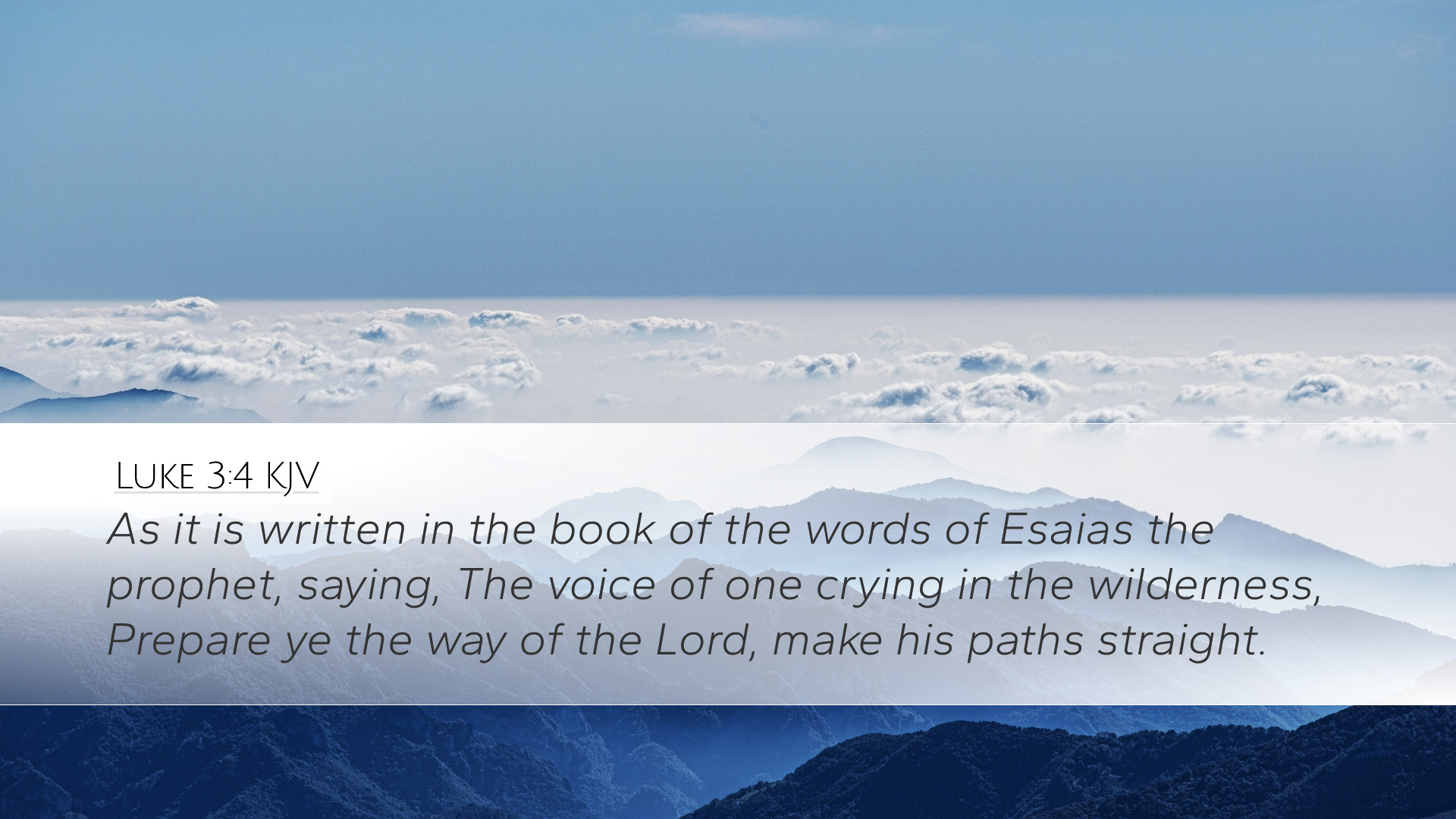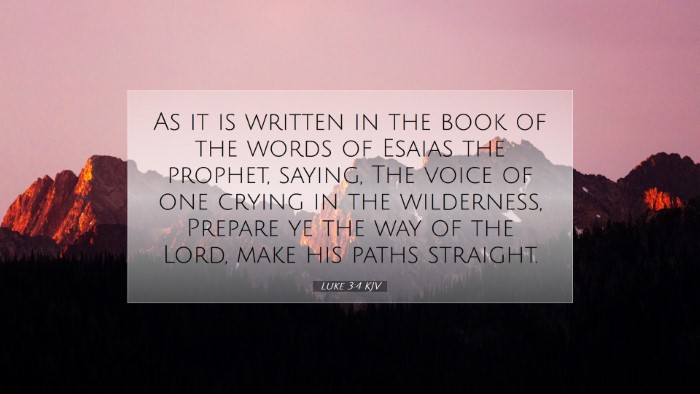Bible Commentary on Luke 3:4
Verse: "As it is written in the book of the words of Isaiah the prophet, saying, The voice of one crying in the wilderness, Prepare ye the way of the Lord, make his paths straight." (Luke 3:4 KJV)
Introduction
The authority and identity of John the Baptist are paramount in understanding the context and implications of Luke 3:4. This verse establishes the fulfillment of prophetic scripture, signifying the significant role of John as the forerunner of Christ. The quotation from Isaiah underlines the continuity of the Old Testament prophecies in the New Testament narrative.
Contextual Background
Luke's Gospel is characterized by its emphasis on the universal nature of the salvation brought by Jesus Christ. In this specific verse, the reference to Isaiah serves to authenticate John's ministry. It connects the prophetic tradition to the coming of Christ, reinforcing the expectation of divine intervention in human history.
Prophetic Foundation
Both Matthew Henry and Albert Barnes articulate the importance of prophecy in affirming the ministry of John the Baptist. Henry notes that the voice in the wilderness signifies the unexpected and humble nature of Christ's coming, while Barnes emphasizes the divine orchestration of events leading to the fulfillment of Isaiah's words.
Key Themes
- The Voice in the Wilderness: This imagery evokes feelings of isolation and humility. John’s ministry took place outside of traditional religious centers, symbolizing a call to sincerity and genuine repentance.
- Preparation: The directive to "Prepare ye the way" signifies the essential requirements for receiving Christ. Adam Clarke interprets this call as a need for personal and communal transformation, establishing an expectation of repentance and moral realignment.
- Straight Paths: The metaphor of making "his paths straight" conveys a sense of urgency in addressing spiritual obstacles. It reflects the need for clearing away hindrances to faith, highlighting the importance of inner purification.
Commentary Insights
Matthew Henry's Perspective
Henry emphasizes that the voice crying in the wilderness portrays a solitary figure amidst a corrupt society. He underscores that John's message was vital — to awaken the hearts of the people, urging them to reflect on their sinful state.
Albert Barnes' Observations
Barnes views the prophecy as significant for several reasons. It affirms God’s plan and readiness to redeem His people. He explains that the “way” represents both the physical journey of Christ and the spiritual conditions of the hearts of individuals. True repentance, Barnes states, prepares the heart for God's entrance.
Adam Clarke's Analysis
Clarke provides a deeper theological analysis, suggesting that the wilderness symbolizes a desolate heart in need of a Savior. His commentary brings to light the transformative power of the message, emphasizing that the ministry of John was directly linked to the spiritual revival of Israel.
Application for Today
This verse serves as a reminder for contemporary believers about the importance of preparing one’s heart for the work of God. The themes of repentance, preparation, and spiritual readiness are as relevant today as they were in John's time. They challenge pastors, students, and scholars alike to reflect on how they are making “paths straight” in their own lives and ministries.
Practical Considerations
- Individual Reflection: Believers are encouraged to assess their spiritual journeys and identify areas needing realignment with God’s will.
- Church Leadership: Pastors and leaders can utilize this call for preparation in their ministries, urging congregations towards renewal and reinvigoration.
- Community Engagement: The church is called to be a voice in the wilderness, addressing societal issues with the message of hope and repentance.
Conclusion
Luke 3:4 encapsulates a powerful call to spiritual awakening and preparation. Through the diverse insights of Matthew Henry, Albert Barnes, and Adam Clarke, we glean a rich understanding of the significance of John the Baptist's ministry. His voice is a timeless reminder of the necessity of repentance in receiving Christ and the ongoing work of preparing our hearts for His presence.


